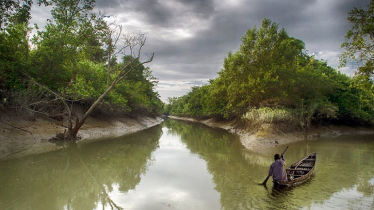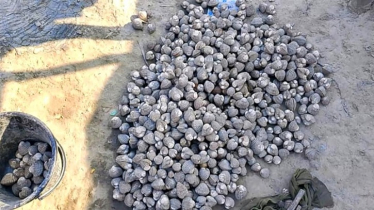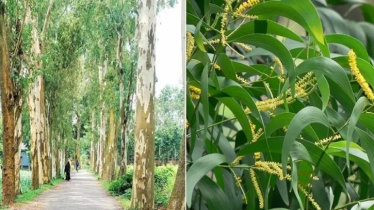
The Bangladesh Environmental Lawyers Association (BELA) has issued a legal notice against 10 government officials, including a secretary, for their alleged involvement in the destruction of reserved forests and ecologically critical areas (ECA) in Maheshkhali, Cox’s Bazar, to establish shrimp enclosures and salt fields. The notice, signed by BELA lawyer S. Hasanul Banna, was sent by registered post on September 3.
The recipients of the notice include the secretary of the Ministry of Environment, Forest and Climate Change, the chief conservator of forests, the director general of the Department of Environment, the deputy commissioner of Cox’s Bazar, the superintendent of police, and several others. The notice asked the officials to inform BELA within seven days of the steps taken in this regard, failing which legal action would be pursued. Advocate S. Hasanul Banna confirmed the matter to the media.
Maheshkhali, the country’s only hilly island, holds significant environmental value. The government previously declared 4,916 hectares of Sonadia and Ghotivanga mouzas as an ecologically critical area, prohibiting all activities that destroy forests, harm biodiversity, or alter the natural features of land and water. Additionally, 4,142 hectares of Gorokghata and Charandwip forest ranges have been classified as reserved forest. Despite this, shrimp enclosures and salt fields continue to expand by occupying large portions of the forest.
According to BELA, these forests were once home to rich biodiversity, including 250 species of fish, 150 species of snails and oysters, 50 species of crabs, 40 species of shrimp, 170 bird species, 50 dune plants, 15 mangrove species, three dolphin species, marine turtles, fishing cats, foxes, snakes, and monitor lizards. More than half of these species are now extinct from the area.
BELA noted that at least 50 shrimp enclosures have been established in Sonadia Island by destroying mangroves, while 15 more enclosures have been developed in Ghotivanga and Bara Maheshkhali. On average, each enclosure was built by clearing 500 acres of forestland. Reports cited by BELA indicate that nearly 10,563 acres of mangroves have been encroached upon in Gorokghata and Charandwip alone.
The notice emphasized that shrimp and salt farming, as well as construction on mangroves, are strictly prohibited under existing laws, policies, and Supreme Court rulings. Yet, coastal mangroves and afforestation belts in Cox’s Bazar, including Maheshkhali, continue to be destroyed, reflecting grave negligence and disregard by the authorities. BELA argued that such actions amount to contempt of court.
The organization demanded immediate measures to halt all shrimp and salt cultivation in natural and planted mangrove areas of Maheshkhali, the eviction of illegal occupants and structures, and the cancellation of all development projects that have led to the destruction of mangroves in the upazila.





